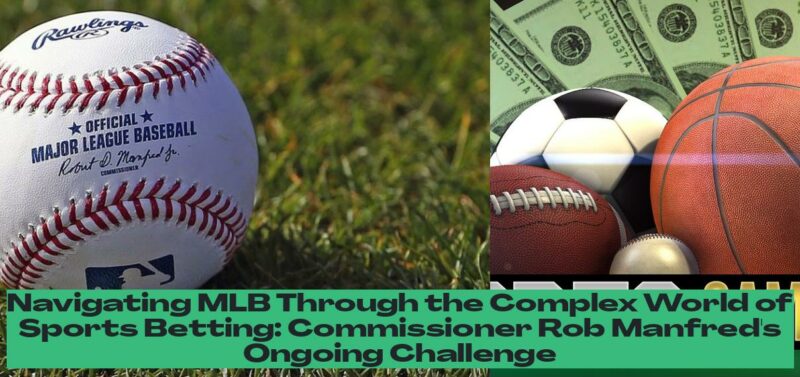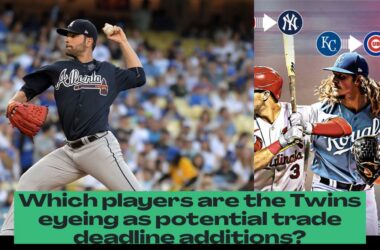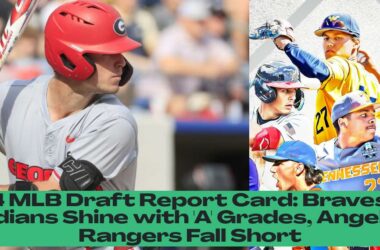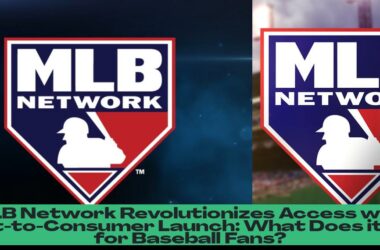Commissioner Rob Manfred Continues to Navigate MLB Through the Tricky World of Sports Gambling
The world of professional sports is constantly evolving, and one of the most significant changes in recent years has been the rise of legalized sports betting. This has presented a unique set of challenges for Major League Baseball (MLB), and Commissioner Rob Manfred is at the forefront of navigating the intricacies of this evolving landscape. While MLB has embraced the potential revenue streams that sports gambling offers, it also faces a delicate balancing act to ensure the integrity of the game and the safety of its players.
Manfred is acutely aware of the potential for abuse and the need to protect the game from those who might seek to exploit its popularity for personal gain. He has implemented stringent policies and procedures to discourage and penalize any players who engage in illegal betting activities. This proactive approach is crucial for maintaining public trust and confidence in the fairness and integrity of the game.
However, the proliferation of legal sports betting has created a new layer of complexity. While MLB has partnered with betting companies to leverage the potential of this market, it also recognizes the unintended consequences that can arise from its widespread accessibility. One of the most alarming concerns is the increased potential for players to face threats and harassment from disgruntled bettors.
Social media has amplified the potential for fans to voice their frustrations, and the advent of prop bets has narrowed the focus of these anxieties to individual players. The stakes have been raised, and MLB is now grappling with the reality of players being targeted for their performances on the field, with some even receiving death threats. While security protocols are in place, the sheer volume of potentially disruptive behavior makes it a difficult problem to manage effectively.
The recent case of Shohei Ohtani’s interpreter, Ippei Mizuhara, who pleaded guilty to fraud after using millions of dollars from Ohtani’s bank account to pay off gambling debts, highlights the vulnerability of players to exploitation. This incident, along with the suspension of five other players for violating MLB’s gambling policy, underscores the importance of vigilant oversight and swift action to deter future transgressions.
Navigating the Complexities of Sports Gambling
The legalization of sports betting has undoubtedly opened up new avenues for revenue generation for MLB. Partnerships with betting companies have provided the league with a valuable source of income and have broadened its reach to a new audience. However, the potential benefits must be weighed against the inherent risks and challenges that come with this evolving landscape.
Manfred has emphasized the importance of monitoring betting activity closely and leveraging technology to identify potential irregularities. While this approach offers a level of reassurance, it cannot completely eliminate the possibility of players being tempted to engage in illegal betting or compromising their integrity for personal gain. The temptation for players to manipulate their performance or influence game outcomes for the benefit of outside parties is a real concern, and one that MLB must continue to address proactively.
The issue of player safety is also paramount. The escalating level of threats and harassment from bettors is a serious concern that requires a multi-faceted approach. MLB must work with law enforcement agencies, social media platforms, and other stakeholders to mitigate the risks and ensure the well-being of its players. Education and awareness campaigns aimed at fans and bettors are also crucial to ensure that the passion for the game does not morph into dangerous and destructive behavior.
In addition to the challenges posed by sports gambling, MLB is also grappling with the complex issue of integrating its players into the Olympic Games. While the return of baseball to the 2028 Olympics in Los Angeles presents an exciting opportunity to showcase the sport on a global stage, it raises logistical and financial concerns for the league.
The Olympic Conundrum
The timing of the Olympic Games coincides with the heart of MLB’s regular season, making it difficult for the league to release its top players for participation. The owners are hesitant to put their revenue-generating season on hold or risk injuries to their star players in a two-week tournament. The World Baseball Classic, which takes place during spring training, has offered a platform for international competition, but it is not without its own challenges.
Manfred has initiated dialogue with Olympic organizers to explore potential compromises that could allow MLB players to participate in the Games without disrupting the league’s schedule. However, the logistical hurdles are significant, particularly given the need for baseball-specific infrastructure in Olympic locations. The availability of suitable venues in Los Angeles provides a unique opportunity, but the long-term viability of baseball in the Olympics remains uncertain.
The level of player interest in participating in the Olympics is undeniable. Players like Shohei Ohtani, Francisco Lindor, and Juan Soto have expressed their desire to represent their countries on the world stage. The prestige of winning an Olympic gold medal is a powerful motivator for many players, and the opportunity to showcase their skills to a global audience is a compelling one.
However, the logistical challenges and potential disruption to the MLB season are significant obstacles that must be overcome. Finding a solution that balances the interests of the players, the league, and the Olympic organizers is a complex task that requires careful consideration and negotiation.
The All-Star Game Uniform Controversy
The All-Star Game is a celebration of baseball’s best players, and it has traditionally been a showcase for the unique uniforms of each team. However, in recent years, MLB has opted to replace the team uniforms with specially designed Nike creations for the Midsummer Classic. This decision has been met with mixed reactions, with many fans and players expressing their displeasure with the new uniforms.
The 2023 All-Star Game uniforms, in particular, drew criticism for their unconventional color combinations and softball-style designs. Many fans felt that the new uniforms detracted from the tradition and identity of the All-Star Game. The attempt to create a unique and marketable look for the event backfired, with many considering the uniforms to be an aesthetic misstep.
Manfred has acknowledged the negative feedback and has indicated that the league will revisit the uniform decision for future All-Star Games. The possibility of returning to the traditional team uniforms has been raised, and the league is open to engaging with players and partners in the decision-making process.
The All-Star Game uniform controversy highlights the importance of considering the traditions and values of the sport when making changes. While innovation is important, it should not come at the expense of the core elements that make baseball unique and special. The All-Star Game is a celebration of the sport’s rich history and the players who have made it so great, and the uniform choice should reflect that.
- Commissioner Rob Manfred is leading MLB through the challenges of legalized sports betting, balancing revenue opportunities with maintaining game integrity.
- Stringent policies and procedures are in place to discourage and penalize players engaging in illegal betting activities, ensuring public trust in the game’s fairness.
- MLB faces new complexities with legal sports betting, including the increased risk of players being targeted for threats and harassment by disgruntled bettors.
- The vulnerability of players to exploitation was highlighted by incidents like Shohei Ohtani’s interpreter misusing funds for gambling debts, emphasizing the need for vigilant oversight and swift action against policy violations.








